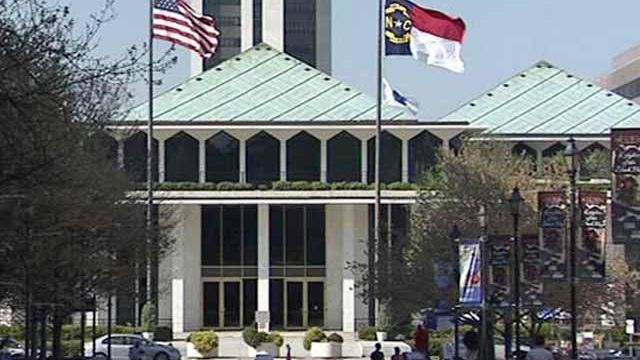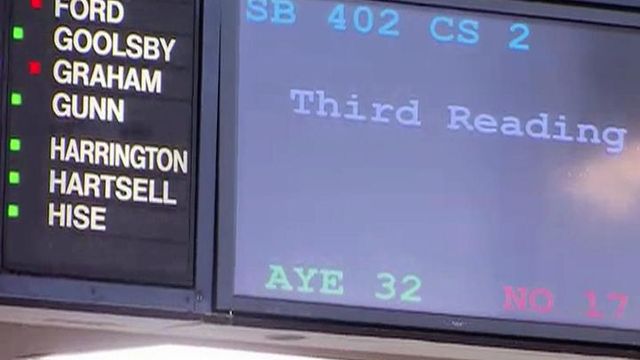Senate finishes work on its budget plan
Senators voted a second time Thursday to approve a $20.6 billion budget. The measure now goes to the House, where Republicans will craft their own spending measure. A final draft of the budget is due by June 30.
Posted — Updated"The No. 1 priority that you have for the state is to give a big tax cut to a few wealthy people," Sen. Martin Nesbitt, D-Buncombe, said Thursday.
"What page is that on in the budget? In the budget we're debating, what page is that on?" Rules Committee Chairman Tom Apodaca asked Nesbitt.
Nesbitt pointed to the section of the budget that reserves the money.
"You identified it by name, so is it in this budget or not?" asked Apodaca, R-Henderson.
Nesbitt again replied that the $770 million reserve would be needed for the tax plan that Sen. Phil Berger, R-Rockingham, outlined earlier this year.
"Maybe this is wrong. There's a video of Sen. Berger talking about it, and we listened to the press conference where Sen. (Bob) Rucho bragged about it, and there is a website," Nesbitt said.
Republicans made equally pointed remarks on taxes, referring to prior Democrat-controlled legislatures that had raised the sales tax.
"Your temporary tax was going to be forever," Sen. Jerry Tillman, R-Randolph said, adding that predictions of massive cuts to public school classrooms were overblown.
Democrats, he said, had required teacher cuts in their budgets as well.
Battle with House expected
Both the House and Senate are controlled by Republicans, but House Republicans do not agree with all of the proposals put forward by their Senate colleagues.
"We look forward to a very strong and productive conference with the Senate," said Rep. Nelson Dollar, R-Wake, the senior chairman of the House Appropriations Committee.
Rep. Mickey Michaux, D-Durham, was more frank than House GOP members, predicting "a big fight" between the House and Senate over the budget.
"House republicans really don't like some of the stuff that's in there," Michaux said of the Senate's spending plan. " I think you're going to see a bigger fight this year over something that's small but yet something that's important."
Some of the differences between the two chambers include education policy. The House has already passed legislation that would reform teacher tenure, but the Senate budget includes a provision to do away with tenure entirely, as well as incorporate other policy items.
"The House would prefer to have less policy that is not tied directly to appropriations," Dollar said.
Tax reform could be an even bigger problem. Each chamber has its own ideas about it – the Senate wants a more radical makeover than the House – and the costs have to be figured into the budget.
The House plan would cost the state $1.2 billion over five years, compared with the $770 million over two years in the Senate budget.
Rep. David Lewis, R-Harnett, said there's a lot of negotiating ahead.
"We just feel like our plan is a great first step," Lewis said.
The House and Gov. Pat McCrory also want $10 million to compensate victims of the state's former eugenics program, but Senate leaders didn't include any compensation money in their plan.
There's also speculation that political ambitions could complicate things. Both House Speaker Thom Tillis and Senate President Pro Tem Phil Berger are said to be considering a U.S. Senate run next year, although neither will confirm it.
House budget-writers are expected to begin the formal process of drafting their budget next week.
Then, the budgets drafted by the House, Senate and governor will be reconciled into a single compromise plan. The fiscal year ends on June 30, although lawmakers say they hope to have a final measure before the middle of June.
Related Topics
Copyright 2024 by Capitol Broadcasting Company. All rights reserved. This material may not be published, broadcast, rewritten or redistributed.






